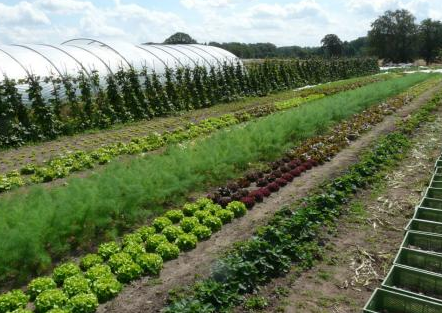A Few Things I've learned
- 22 oct. 2017
- 3 min de lecture
From mice-eaten potatoes to fly- and maggot-infested sheep to broken display fridges to Thomas's hantavirus, farming does not always run smoothly. In Monday's newspaper was an article reporting that salmonella had been found in black caraway seeds used in a large proportion of the cheese produced on a local organic farm. That cheese was of course binned, the milk wasted, and the money lost. Such an incident also creates reluctance and wariness in regular customers and may affect business. Later that day, Thomas received word that, for the second time since I've been here, a sheep is infested with maggots essentially eating it from the inside. The first ewe to which this happened barely made it and is still recovering in the stables, moving as little as possible so her skin doesn't crack and crumble.

Organic farming is a risky business, dependant on weather conditions, on the presence or not of viruses, diseases, fungus, on the age of the machines and tools and on demand. Thomas says that when he started learning about agriculture and farming, he was told that 50% of his work would consist of repairs, which has so far been true. The other main bulk of work is cleaning.
I have done my bit of cleaning, be it the cheese dairy or the electric slicer, and I don't think I will complain about the price of organic food again: it is hard work and time consuming. Sorting out potatoes and turnips also made me aware of the proportion of produce which is not sold simply because the customer will not buy a twisted, bruised or oddly sized vegetable. Gudrun says that if she displays a crooked cucumber in her shop, she can be almost certain it will be the only one left at the end of the day, which is why the produce for sale is flawless.

Thomas and Gudrun, as part of the "Bioland" community, get invited to gatherings where farmers showcase their farms and produce, explain a bit about their personal projects and answer any questions. Last week, Thomas took me along to Hof Pente, just north of Osnabrück, which functions as a Community Supported Agriculture (CSA) project, meaning that a membership programme supports the farm's budget. Members pay 100 euros a month in exchange for four weeks worth of whatever has been harvested, picked, slaughtered, gathered that week, and come to pick it up every Friday afternoon. There is no set amount of produce attributed to each member, it is expected that everybody take what they need for the week with respect for the next people in line. With 280 members, the contributions are enough to cover the farm's costs, be it salaries, repairs, development, and support for the family.
Hof Pente specialises in vegetable gardening but they also keep sheep, cows, pigs, chickens and harvest their own bees' honey. The idea is that members willingly face the risks and consequences of a bad harvest alongside the farmers and are made aware of hazards such as mice, viruses, and bad weather conditions, to name but a few. In my opinion, CSA is a convivial way of sharing not only the bright side of organic farming but also the drawbacks with the people that benefit from the yields. The discussion around further development of this project was interesting, especially in regards to soil depletion and new fertilising methods.
This is my last post about the farm since I am now back in Paris enjoying a few days with my family and my last moments in our house. I had a wonderful time, learned many things and am very thankful to Thomas and Gudrun.
Look forward to posts and photos from Sri Lanka!
Sascha xx

























Commentaires